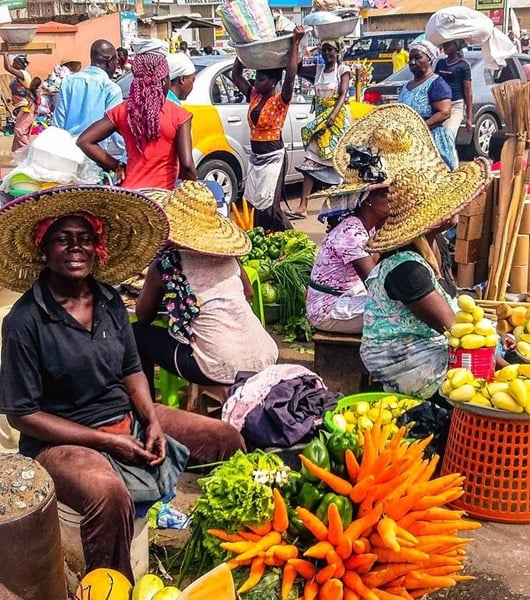The burial rites of the late Asantehemaa, Nana Yaa Konadu Yiadom III, held at the Manhyia Palace in Kumasi from September 15th to 19th, 2025, sparked a surge of economic activity within the Kumasi metropolis, bringing much-needed relief to traders. The influx of mourners and observers from across Ghana and beyond, drawn to the cultural significance of the funeral ceremonies, transformed the city into a bustling hub of commerce. Markets overflowed with customers, transportation services operated at full capacity, and food vendors and hospitality businesses experienced unprecedented demand. This period of heightened economic activity served as a stark contrast to the usual trading climate, offering a glimpse into the potential prosperity that consistent high demand could bring.
The impact of the increased foot traffic was palpable throughout various sectors of the Kumasi economy. Market women, in particular, reported a significant upswing in their sales, with many selling out their entire stock on a daily basis. This unexpected windfall provided them with a much-needed financial boost, enabling them to adequately provide for their families and loved ones. The surge in demand extended beyond basic necessities to encompass various goods and services, indicating a broad-based economic benefit stemming from the funeral rites. This positive economic ripple effect underscores the significant role that cultural events can play in stimulating local economies.
The palpable relief and joy expressed by the traders highlight the precarious nature of their livelihoods. The reliance on sporadic events like the Asantehemaa’s funeral to achieve substantial sales reveals the underlying challenges they face in maintaining a stable income stream. The traders’ earnest pleas for sustained economic growth beyond festive occasions underscore the need for long-term solutions to ensure their financial security. Their calls for proactive measures from local authorities and stakeholders reflect a desire for sustainable economic development that goes beyond temporary spikes in activity.
The Asantehemaa’s funeral inadvertently served as a case study in the potential for economic growth within Kumasi. The influx of people and the resulting increase in demand demonstrated the city’s capacity to accommodate and benefit from large-scale events. This experience could inform future strategies for attracting visitors and boosting economic activity, potentially through the development of tourism initiatives, cultural festivals, and other events that draw large crowds. Leveraging the city’s rich cultural heritage and its proven ability to handle significant influxes of people could lead to more sustainable economic opportunities for local businesses.
The traders’ experiences offer valuable insights into the complexities of local economies and the impact of significant cultural events. Their narratives provide a human dimension to the economic data, illustrating the direct correlation between increased commercial activity and improved livelihoods. The funeral, while a solemn occasion, provided a crucial lifeline for many struggling businesses, reminding us of the intertwining of cultural practices and economic realities. The lessons learned from this period of increased economic activity could be instrumental in developing strategies for sustained growth within Kumasi.
The desire for sustained economic growth expressed by the traders of Kumasi echoes a broader need for economic stability and diversification in the region. While events like the Asantehemaa’s funeral provide temporary relief, they are not a substitute for long-term economic planning and development. By capitalizing on the lessons learned from this period of increased economic activity, local authorities and stakeholders can work towards creating a more resilient and prosperous future for Kumasi, one where economic opportunities are not contingent on sporadic events, but rather on a foundation of sustainable growth. This requires a concerted effort to foster a business-friendly environment, invest in infrastructure, and promote the city’s unique cultural assets to attract visitors and investors alike.














